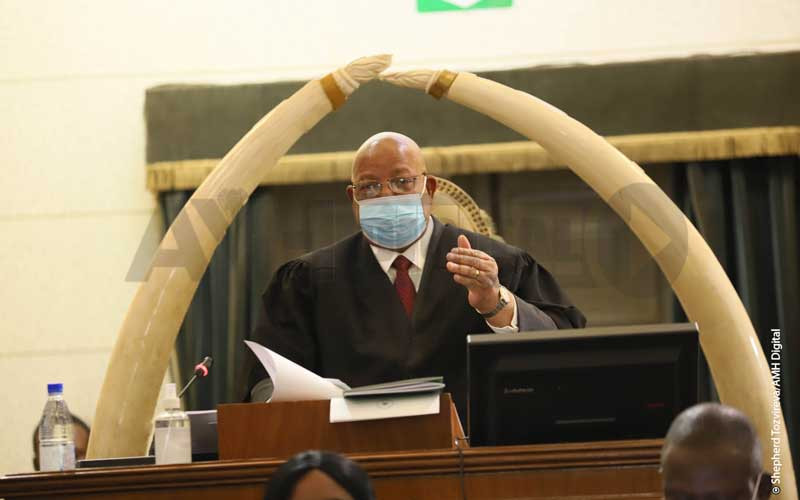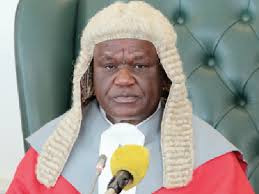
SPEAKER of the National Assembly Jacob Mudenda has rejected calls by opposition legislators to recommit the Private Voluntary Organisations (PVOs) Amendment Bill to the Committee Reading Stage after civic society organisations and foreign embassies red-flagged the proposed law as oppressive.
The PVOs Amendment Bill passed through the Committee Reading Stage in the National Assembly when opposition legislators were absent from the House.
Those who were present claimed that they were denied a chance to participate through the Parliament virtual platform by Justice Minister Ziyambi Ziyambi.
Civic society organisations also felt that Public Service, Labour and Social Welfare minister Paul Mavima introduced new amendments to the Bill that were not subjected to public hearings.
Crafting of the Bill was put on hold after opposition legislators demanded an investigation into why they were sidelined from contributing their views through the virtual platform. Making a ruling on the issue on Tuesday, Mudenda said there were no flawed procedures that warranted re-committal of the Bill.
‘’I have a short ruling here which I promised — a ruling on the re-committal of the Private Voluntary Organisations Bill (HB 10, 2021). On Tuesday 26 July, 2022, the Second Reading of the Private Voluntary Organisations Bill (HB 10, 2021) was done.
‘’Standing Order No 147 provides that not more than one stage of a Bill must be taken at the same sitting without leave of the House. Public Service, Labour and Social Welfare minister, therefore, sought leave of the House to have the Committee Stage forthwith, and this was not objected to.
‘’The House dissolved itself into a committee and the Bill was put forth clause by clause. On Clause 6 of the Bill, Honourable Edwin Mushoriwa (Dzivarasekwa MP) on the virtual platform informed the Chair that he was having a technical problem. He wanted to know which Bill was being debated.”
- Poor families fear PVO could decimate livelihoods
- Poor families fear PVO could decimate livelihoods
- Poor families fear PVO could decimate livelihoods
- Probe Green Bombers abuses: CSOs
Keep Reading
“Facts of the matter are that when the Bill was put to the House clause by clause, none of the honourable members objected. The Bill was considered at Committee Stage and all clauses were adopted. It was only the following day that Honourable Mushoriwa wanted re-committal of the Bill claiming that rights of members to debate had been violated.”
Mudenda added: “However, having considered the matter, I rule as follows: No procedure flaws were brought to my attention to warrant the re-committal of the Bill. On the fluctuating network, it was the duty of the honourable member to ensure that he joined the sitting at a place that had stable internet connectivity.”
Mudenda also ruled against calls by Mutare Central MP Innocent Gonese (CCC) seeking recommital of the Bill.
The Speaker’s ruling came as Zimbabwe Lawyers for Human Rights (ZLHR) executive director Roselyn Hanzi made calls at the United Nations Human Rights Council 51st session in Geneva urging the Zimbabwean government to respect the role of CSOs in the country.
Hanzi said government should initiate a comprehensive consultative process to enact an enabling law which facilitated the work of CSOs.
“ZLHR is a non-partisan law-based human rights organisation which has assisted victims of human rights violations from all political persuasions, including war veterans and the ruling Zanu PF party supporters,” Hanzi said.
In a statement, the Zimbabwe Coalition on Debt and Development urged legislators to protect the social contract with citizens and seek to expand rather than shrink the democratic space by hindering the efforts of non-governmental organisations.
“Operating environment for NGOs should be liberal and civil society should have the right to participate in governance processes and to hold the government to account as the system of checks and balances allows.”
- Follow us on Twitter @NewsDayZimbabwe










